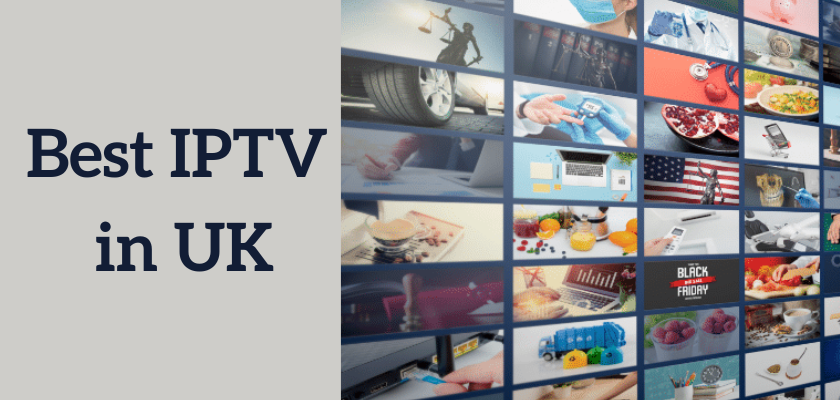From Cable to Cloud: The IPTV Shift Explained
In recent years, the television landscape has undergone a significant transformation, shifting from traditional cable systems to more innovative solutions like IPTV services. This transition reflects not only changes in consumer preferences but also advancements in technology that have made it easier and more appealing to access content from various devices and locations. As viewers increasingly seek flexibility and personalization in their viewing habits, IPTV has emerged as a popular alternative that offers distinct advantages over conventional cable television.
IPTV services provide subscribers with a host of benefits that enhance the overall viewing experience. Unlike cable, which often locks viewers into rigid channel packages and schedules, IPTV allows for on-demand access to a wide variety of content, enabling users to watch what they want, when they want. Additionally, many IPTV platforms boast superior streaming quality and a more extensive selection of international channels, further enriching the viewing experience. With the shift towards internet-based solutions, more people are discovering the convenience and accessibility that IPTV services deliver, making it clear why this change is here to stay.
Understanding IPTV Technology
IPTV, or Internet Protocol Television, is a method of delivering television content over the Internet rather than through traditional terrestrial, satellite, or cable formats. This technology uses a broadband internet connection to transmit video and audio signals to viewers, allowing for a seamless and efficient streaming experience. With IPTV, users can access a wide range of television channels, movies, and on-demand content right from their devices, eliminating the need for bulky cable boxes and equipment.
One of the core components of IPTV technology is the use of Internet Protocol, which converts broadcast content into data packets that are sent over the internet. This allows users to watch their favorite shows and movies anytime and anywhere, as long as they have a stable internet connection. IPTV providers often offer various subscription plans that cater to different viewing preferences, giving users flexibility in their choices and the ability to personalize their entertainment options.

The infrastructure supporting IPTV includes servers that store content and handle the delivery process. These servers ensure that the streaming quality remains high, with minimal buffering or interruptions. Advanced codecs and streaming protocols also play a vital role in optimizing the content delivery, providing viewers with a high-definition experience. As the technological landscape continues to evolve, IPTV services are becoming an increasingly popular alternative to traditional cable TV, offering advantages like cost savings, accessibility, and a diverse range of content.
Advantages of IPTV over Cable
IPTV services offer greater flexibility in viewing content compared to traditional cable systems. With IPTV, users can watch shows and movies on their schedule through on-demand features, allowing them to pause, rewind, or skip content without being tied to a broadcast schedule. This level of control enhances the viewing experience and caters to the habits of modern audiences who prefer customized entertainment solutions.
Another significant advantage of IPTV is the potential for improved content variety. IPTV platforms often provide access to a broader range of channels and genres, including niche programming that may not be available through standard cable packages. Users can explore international programming, independent films, and specialized channels, enriching their entertainment options significantly.
Cost-effectiveness is also a compelling reason to switch to IPTV services. Many IPTV providers offer subscription plans that are more affordable than traditional cable packages. By eliminating the need for extensive infrastructure and allowing users to bypass costly equipment rentals, IPTV can save consumers money while providing access to high-quality content and additional features, making it an attractive alternative for budget-conscious viewers.
The Future of IPTV Services
The future of IPTV services looks promising as technology continues to advance and consumer preferences evolve. With the increasing availability of high-speed internet and improvements in streaming technology, IPTV is becoming a more viable and attractive option for viewers. This shift is leading service providers to enhance their offerings, ensuring more reliable connections and better-quality content delivery. As users demand more flexibility, IPTV services are stepping up to meet these expectations by offering customizable packages and on-demand content.
In addition, the integration of artificial intelligence and data analytics is set to revolutionize IPTV services. Providers can leverage user data to deliver personalized content recommendations, making the viewing experience more engaging for audiences. As iptv services in the industry heats up, we can expect innovative features such as interactive programming, voice-activated controls, and enhanced user interfaces that cater to individual preferences and lifestyles. This adaptation will likely draw more users away from traditional cable services, further solidifying IPTV's place in the future of entertainment.
Moreover, the rise of original content production by IPTV platforms presents an exciting evolution in the media landscape. Just as streaming giants have transformed entertainment consumption with exclusive series and films, IPTV services are beginning to invest in their own original programming. This strategy not only attracts subscribers but also helps differentiate providers in a crowded marketplace. As IPTV services continue to innovate and expand their content libraries, they will play a key role in shaping the future of how we consume television and media.